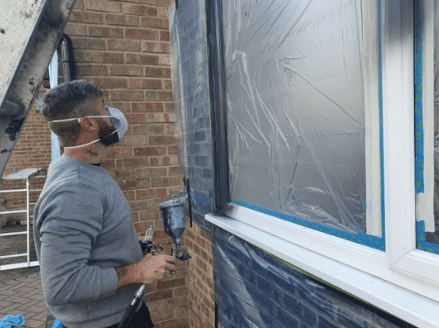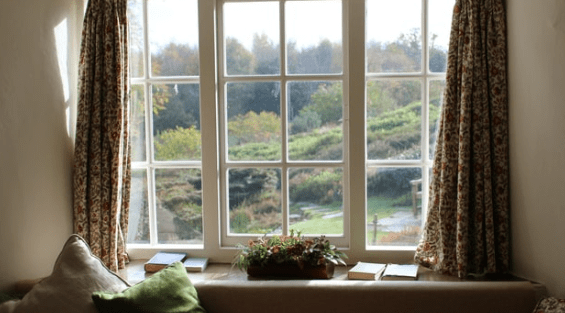
At The Spraying Team, we often get asked about the differences between uPVC spray painting and uPVC window wrapping. Both methods can transform the appearance of your existing windows, but which offers better value and results? This comprehensive guide will help you understand both options so you can make the right choice for your property.
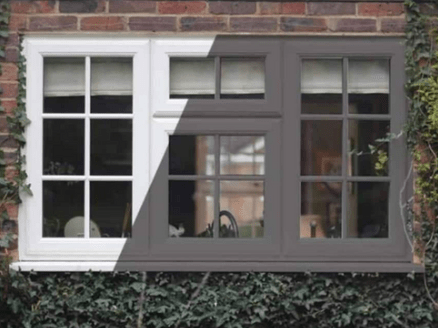
uPVC windows are incredibly popular across the UK, offering excellent insulation and durability. However, over time, the bright white finish can become discoloured or simply feel outdated. Rather than opting for costly window replacements, homeowners now have two viable options to refresh their property's appearance: spray painting or vinyl wrapping.
uPVC spray painting involves applying specialist paints to your existing window frames using professional spray equipment. The process transforms the colour of your windows while maintaining their original structure and functionality.
When we at The Spraying Team approach a uPVC spray painting project, we follow a meticulous process:
The specialist paints we use are specifically formulated for uPVC materials, creating a bond that provides long lasting results. With proper surface preparation, spray painting can transform windows, doors, and other uPVC elements with remarkable durability.
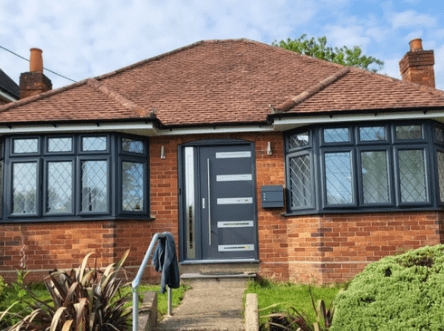
uPVC window wrapping involves applying vinyl wrap (a type of adhesive film) to your window frames. This process covers the existing uPVC with a layer of vinyl that changes its appearance.
The window wrapping process typically includes:
Many wrapping companies promote this as a quick solution for changing the colour of uPVC windows. While a single roll of vinyl might seem cost-effective for one window, professional installation requires skill to avoid bubbles and peeling.
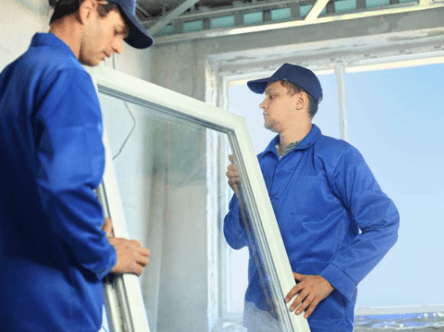
uPVC spray painting typically provides a more durable and long lasting finish than wrapping. When professionally applied by professional painters, spray painting can last 10+ years without peeling or significant fading. The uPVC spray offers excellent protection against weathering.
Window wrapping, while improving in quality, remains more susceptible to peeling, especially around edges and corners. Vinyl materials can sometimes struggle with the UK's variable weather conditions, potentially leading to shrinkage or lifting. Many consider wrapping a temporary fix compared to spraying.
One of the main advantages of uPVC spray is the flawless finish it creates. High quality paints bond with the uPVC material, creating a surface that looks and feels like it came that way originally.
Vinyl wrap can provide a smooth appearance initially, but joints and edges can sometimes be visible upon closer inspection. The best quality vinyl can look impressive at first, but may not maintain its appearance as long as spray painted surfaces.
Both methods offer extensive colour options. With window spraying, we can match virtually any RAL colour chart selection, giving you complete freedom to choose the perfect shade for your property.
Quality vinyl for wrapping comes in numerous colour options as well, though the selection might be limited to the manufacturer's range of films available.
Spray painting is generally more cost effective for most houses, especially when multiple windows need treatment. The materials and labour costs become more economical with larger projects.
Window wrapping can appear cheaper for small jobs like one window, but when considering full properties, the materials cost adds up. Professional application requires careful fitting of each piece, which is a labour-intensive process.
Both options are more eco-friendly than complete window replacements since they extend the life of existing windows. However, spray painting typically produces less waste than vinyl wrapping, where offcuts from rolls are often discarded.
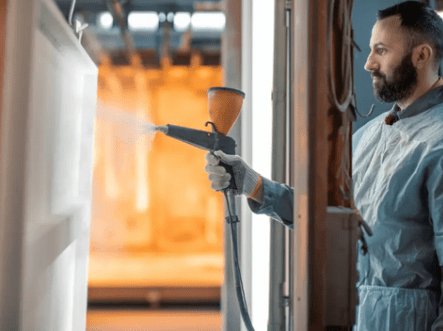
A properly applied uPVC spray painting job can create a long lasting finish that lasts 8-10 years. The surface remains durable against normal weather conditions and doesn't fade quickly when high quality paints are used.
Vinyl wrapping generally has a shorter lifespan, with most quality vinyl products lasting 3-7 years before signs of wear become noticeable. The appearance can deteriorate more quickly if not installed perfectly.
Neither spray painting nor vinyl wrapping impacts the functionality of your uPVC windows or doors when properly applied. Both methods simply change the colour and appearance without affecting how windows open or close.
Spray painted uPVC surfaces require minimal maintenance - simply clean them as you would normal uPVC windows. The colour is resistant to UV damage and doesn't require special treatment.
Wrapped windows need careful cleaning to avoid catching or lifting edges of the vinyl. Harsh chemicals should be avoided to prevent damage to the material.
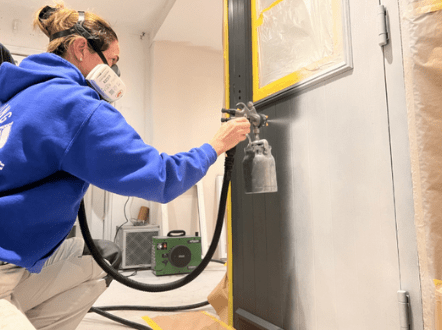
When deciding between uPVC spray painting versus uPVC window wrapping, consider these factors:
If you're looking for a long term solution with minimal maintenance, uPVC spray painting is generally the better choice. If you want a quick change that might need renewing sooner, wrapping could be an option.
At The Spraying Team, we specialise in professional uPVC window spraying using only high quality paints to ensure a durable, long lasting finish for your windows and doors. Our process has been refined over years of experience to deliver a flawless finish every time.
When you choose our service, you benefit from:
Ready to transform your property? Contact The Spraying Team today for a free quote and discover how we can revitalise your home's appearance with our professional uPVC spray painting service.
